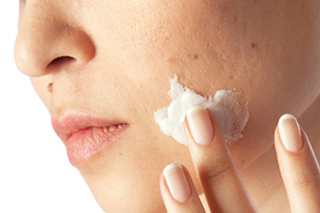How To Age Naturally: Elderly Skin Care Conditions & Treatment Tips
January 21, 2016
Growing old has a new face these days. Instead of laugh lines and wrinkles that give character to an aging face, older skin has been resurfaced by collagen fillers and chemical peels that remove all trace of the stories behind the skin. Many older women’s eyes – the windows to the soul – are pulled back so tight they resemble a panicked jungle cat. Botox has taken away their ability to register an actual expression.
In 2014, the anti-aging skincare industry made nearly $2.1 billion from those searching for the fountain of youth. Some products that claim to rejuvenate skin cost upwards of $100 for a small jar of cream.
According to Andrea Robinson, former Vogue beauty editor and author of Toss the Gloss: Beauty Tips, Tricks, and Truths for Women 50+, many expensive products have drugstore counterparts with similar ingredients – because these individual name brands are often owned by the same parent companies.
There are a number of ways to combat some of the most common problems with older skin – without having to take out a reverse mortgage. Here are a few tips for aging skin that won’t break the bank.
Dry Skin
The average person’s skin produces 1% less collagen each year after the age of 20. Combined with a reduction of oil and sweat produced due to age, skin thins with age, making it dry and flaky.
To keep skin supple, use soap and moisturizers formulated for dry skin (such as Eucerin) and avoid hot showers – which can further dry skin. Also, ditch the caffeine and start drinking water. Drinking 2-3 liters per day helps skin stay hydrated.
Age Spots & Skin Cancer
While you may have some harmless spots or moles that have popped up with age, it’s important check them at least twice a year to make sure they’re not discolored, bleeding, or expanding in an asymmetrical pattern. These are the warning signs of skin cancers and should be looked at by a doctor.
According to the Skin Cancer Foundation, daily use of sunscreen with an SPF of 16 or higher can reduce the risk of getting skin cancer by half. They recommend applying sunscreen to the head, neck, arms, and hands when going out. A tinted moisturizer with SPF is another great option.
Bruising & Discoloration of Skin
Older adults who take blood thinners or use OTC pain relievers like ibuprofen are at greater risk of burst blood vessels. With age, blood vessels become easier to damage, resulting in bruising and skin discoloration. A cold compress applied immediately can reduce blood flow to the area and minimize bruising.
Older adults may also see bags under their eyes or discolored skin due to the loss of collagen and fat that comes with age. While drinking more water, and avoiding sleeping on your stomach or rubbing your eyes can help reduce this problem, makeup can reduce their appearance.
Matching your foundation and concealer can help cover spots and help you to avoid the dreaded “reverse raccoon” look with lighter circles under the eyes. Laura Mercier’s Secret Camouflage is a good choice for covering dark spots, as is Maybelline Cover Stick in a shade matched to your skin tone.
While good skincare is important, what’s wrong with a few wrinkles and age spots? A face that’s been weathered by age doesn’t reduce the sparkle in those eyes – as evidenced by the centenarians in the Dodge 2014 Super Bowl commercial. The next time you’re tempted to shell out $100 for the latest miracle cream, take a tip from these spunky seniors and remember that every line on your face has a story behind it and wisdom to impart. It’s not the skin you’re in, it’s the person within.
Share your beautiful selfies with us on Facebook or Twitter to promote the beauty of aging! #BayAlarmMedical




